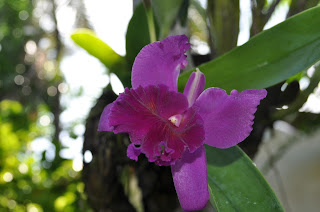I have been in the women’s movement for decades.
Last year, our group called Forward Women promoted a women’s agenda for the 2016 presidential campaign.
For the first State of the Nation Address (SONA) of President Rodrigo Duterte, we (Forward Women) worked for the inclusion of the highlights of this agenda in the SONA.
To date, this women’s agenda has been presented to the Philippine Commission on Women (PCW) and some line agencies for policy implementation such as the Department of Social Work & Development (DSWD).
What has gone before?
The theme that resonates across all my passions in love, work & play is women’s rights.
And across time, women who want to influence the mainstream have to be in the table where important decisions are being made.
As we have seen, power in the mainstream can be all that we do NOT want: negative, selfish, destructive, ignorant, backward, etc.
For these reasons, women have been talking about changing that mainstream for the better & for everyone.
Centuries ago, the woman question did not have a name.
Indeed, a first step is knowing how to frame the problem.
Feminism is not only being aware that there have been injustices committed against women but that women have launched many movements to address the violations.
What have been the violations and what have been the solutions?
In short hand, the situs of violations have been at home, at work and in the community.
At home, she is battered on many fronts: even if all genders are working, the man refuses to go to the kitchen nor to be absent from work when children are sick.
At the workplace, not only are there fewer women compared to men but that either women were receiving less but also that women did not have access to the more powerful posts occupied by men.
In the community, there are less women politicians in governance and positions of power & authority.
Women were formally discriminated in our laws & policies.
One basic solution in 1987 was to enshrine a gender equality provision in our constitution.
So, over the years there have been laws: defining the rights and obligations of spouses in our Family Code, a law named Anti-violence against women & their children’s act (R.A. 9262),Women in Nation Building & Development, the Magna Carta of Women & recently the Reproductive Health (RH) law.
For me, the best framing of women’s issues is to say that women’s rights are human rights.
Human rights are about civil, political, social & economic rights & all these are our inalienable rights as human beings. Human rights have been translated to policy instruments and programs for all genders. We must keep in mind, too, that gender is no longer binary: not just male and female but also based on gender identity and so we have lesbians, gay, transgender, bisexual & queer (LGBTQ). While awaiting for a national law that will make discrimination illegal based on sexual orientation and gender identity, a handful of local government units (Lgus) have already passed an Anti-discrimination law. Davao City has been one of the first lgus to pass an Anti-discrimination law that include reference to sexual orientation and gender identity.
What are the current gaps in our policy instruments for women’s well being?
Except for our Muslim community in the Philippines which have sophisticated forms of divorce, the Christian majority in the Philippines is the last entity on earth (much like the Vatican) which does not have access to an absolute divorce law. Divorce is an option giving remedy for all genders.
Women are still poorer as ever. But, also, even as our economic growth is increasing, our economic system is failing the majority of genders, not just women, but all.
The pay of the salesgirl who stands 8 hours a day is not enough to keep body & soul together. Not only is the face of the farmer that of a man, but that the income of all farmers is a little over a hundred pesos a day. Pray tell, how are our farmers able to survive with that?
As we have said time & again, one precursor of rebellion is poverty.
That peace is a women’s issue is to say that the women’s movement is against oppression, war & violence of all kinds & so we wish to take part in crafting sustainable solutions towards peace & development.
Let me, also, spot on in one of my workplaces & not go far with my pen and qwerting. Who is taking care of the welfare of writers and journalists in this online era?
This to me should be part of the challenges that women activists must work for. Including the welfare of writers & journalists is an example of mainstreaming all issues close to our hearts.
And the ultimate in mainstreaming is bringing all issues into the policy arena for impact. But, first things first: frame the issues as policy proposals.
Tuesday, March 7, 2017
Subscribe to:
Comments (Atom)




